This Is How Often You Should Replace Your Cleaning Supplies, Experts Say
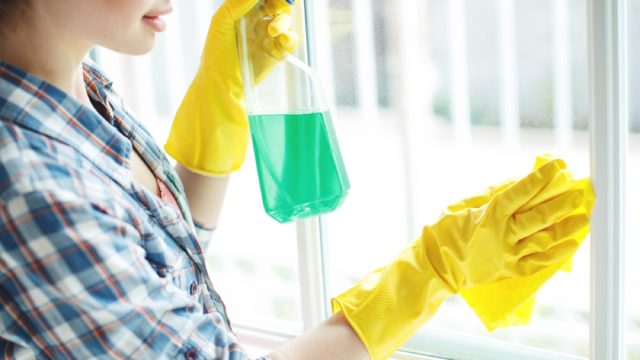
We’ve all been doing more cleaning than ever these days. But no matter how much you’re wiping down your door knobs and light switches to keep COVID at bay, the fact of the matter is, you could be leaving germs behind if you don’t look at your cleaning supplies’ expiration date or know when to replace them. Yes, your cleaning products need to be replaced on a regular basis, just like that old milk in your fridge and the crusty mascara in your purse. Before you reuse a dingy mop head or wipe down your counters with another bacteria-laden sponge, find out just how often you should be replacing all of your essential cleaning supplies. And once you have the goods, try these Genius Tricks That Will Cut Your Cleaning Time in Half.
Your Sponge
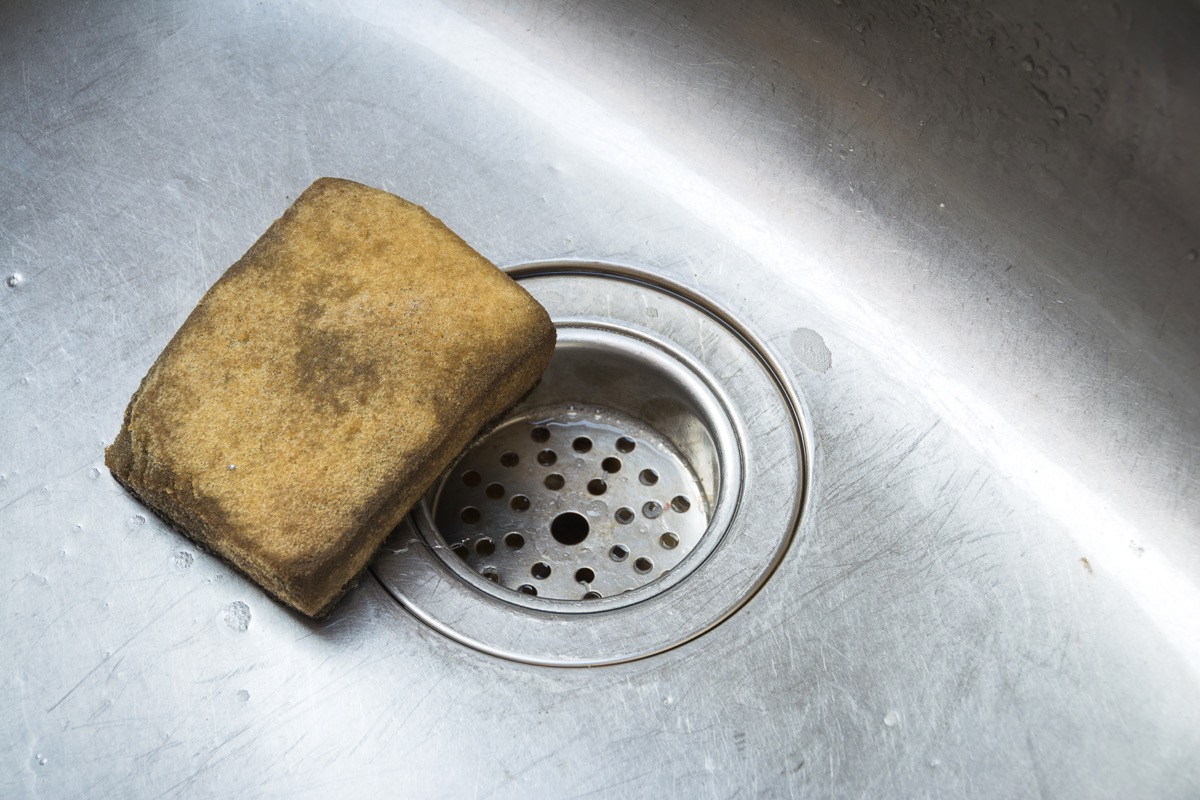
Those dirty dish sponges sitting around the edge of your sink are seriously gross—they may even be harboring dangerous bacteria like E. coli and salmonella—so it’s essential to replace them on a regular basis. “When it comes to your sponges and scourers, these should be added to your grocery list and be changed every single week,” says Henry Paterson, operations executive at Housekeep, a London-based house cleaning company. “This not only keeps your kitchen sanitary, but ensures that the sponges stay effective for removing grease and dirt from your crockery.” And while you’re scrubbing, discover these Amazing Cleaning Hacks You’ll Wish You Knew Sooner.
Your Mop Head
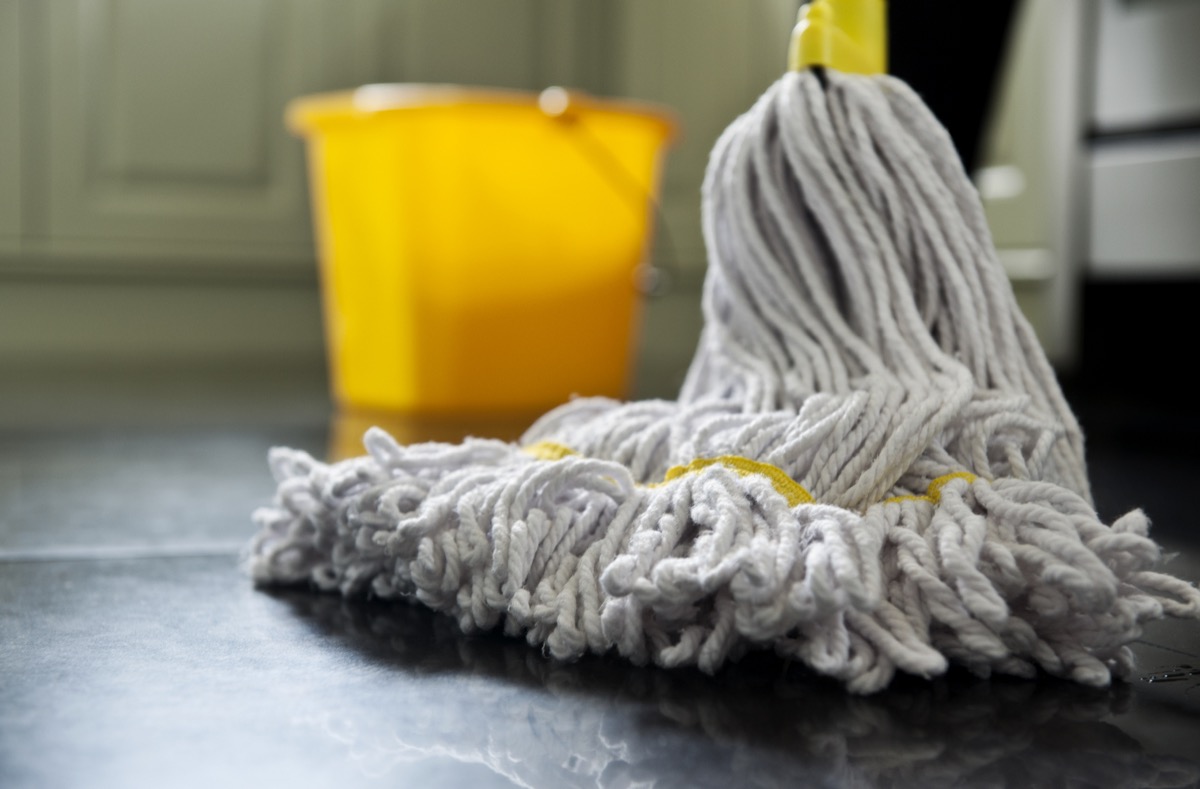
Dipping that mop into dirty water over and over again means it can quickly become a breeding ground for bacteria, one you’ll definitely want to replace frequently. “Mop heads can get pretty mucky with time and use,” says Paterson. “It may sound excessive, but these should be changed after a couple of months, assuming they’re getting the regular use that they ought to be.”
In the meanwhile, he suggests that you “thoroughly wash, rinse, and wring dry” your mop head after every use to ensure it lasts as long as possible.
Your Duster
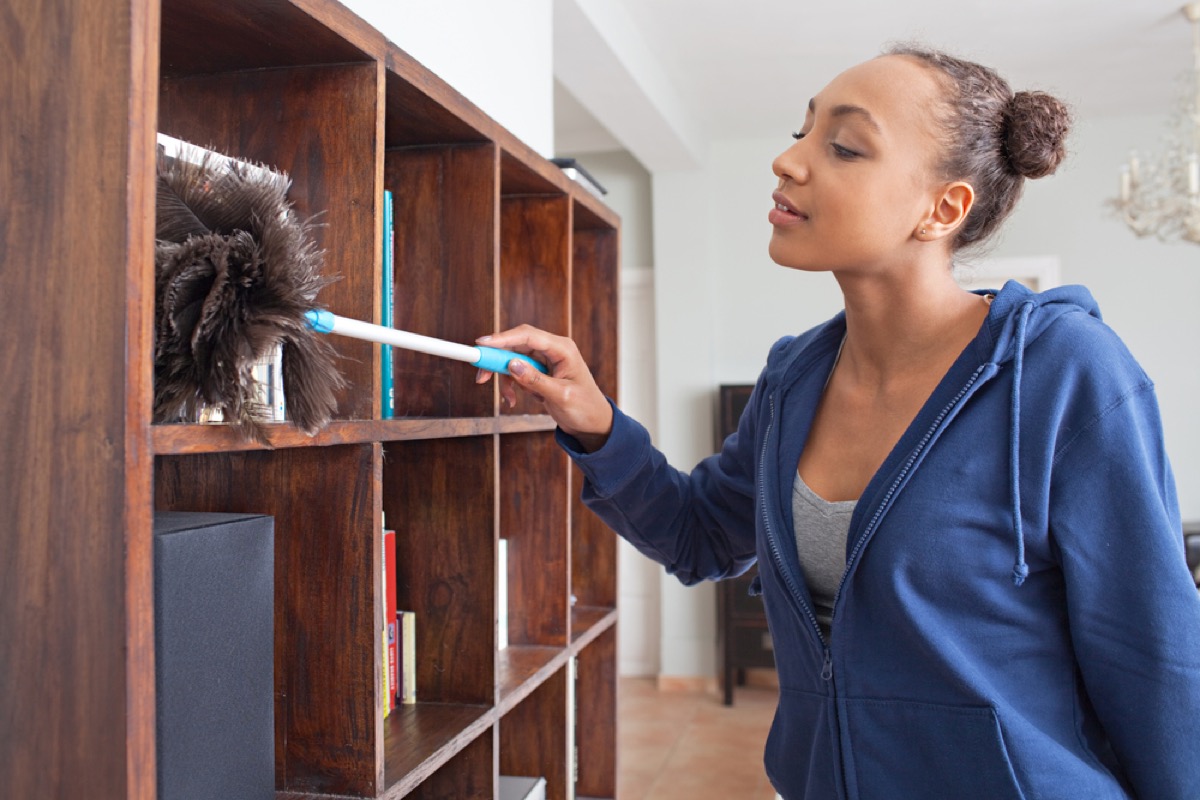
While your feather duster doesn’t necessarily need to be replaced unless the feathers are falling out, it does need a regular cleaning. At least once a week, shake out your duster outdoors, and every month or so, give it a wash using warm water and some dish liquid.
But if the thought of swiping those dusty feathers across your home seems icky to you, a microfiber dusting cloth could be the solution you’re looking for. “We recommend microfiber cloths, which can be washed and reused hundreds of times,” says Paterson. “You can chuck your microfibers into the laundry with a little detergent once a week and then air dry.”
Your Cleaning Rag
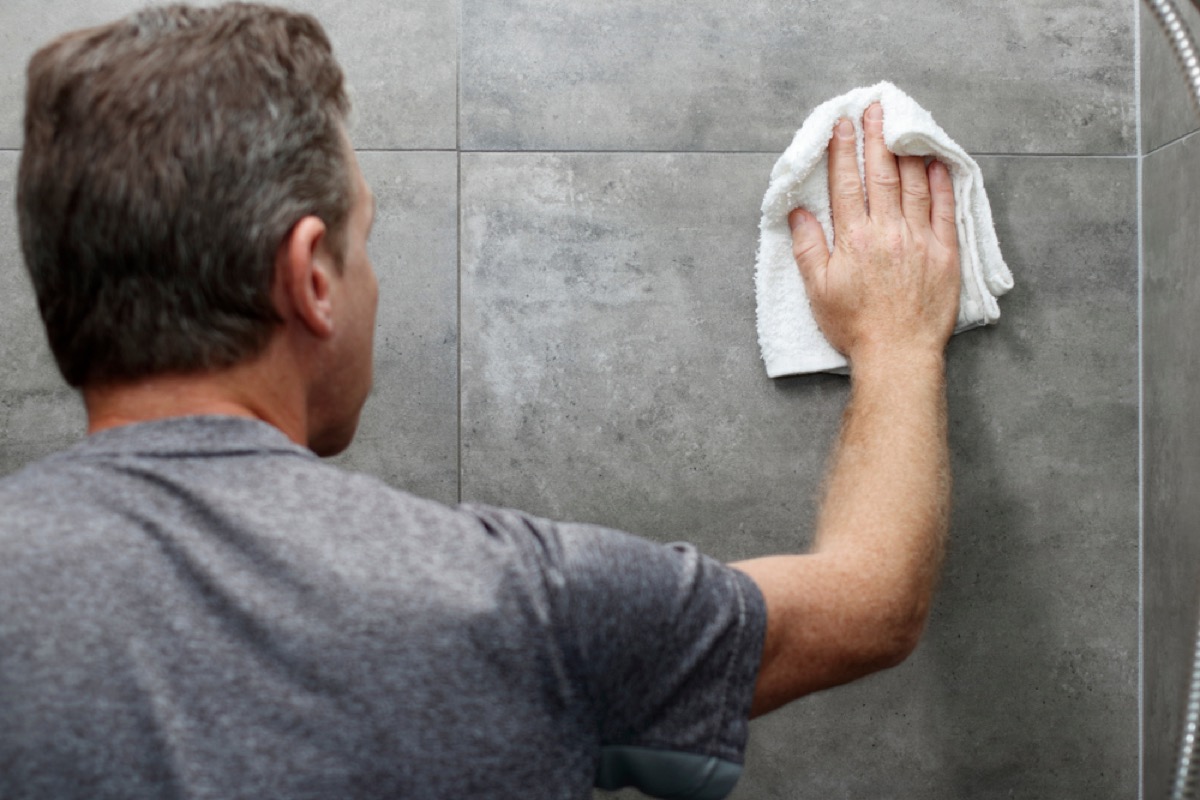
Those old rags you’ve been using to wipe down everything from your floors to your electronics? Yeah, they need a thorough cleaning, too. “Damp cloths are a breeding ground for mildew growth,” says Sean Parry, a cleaning expert at U.K.-based house cleaning company Neat Services. According to Parry, they should be “washed regularly, particularly if they’re being used daily.” He adds that “they should also be hung and air dried when not being used to minimize the unpleasant damp smell.”
However, if you’ve purchased sturdier microfiber cloths, at Paterson’s recommendation, Parry recommends only replacing them every few months or when they’re too worn out to be used effectively. And if you’re wondering what needs a good wipe down, research says This Is the Absolute Germiest Thing in Your Home.
Your Cleaning Gloves
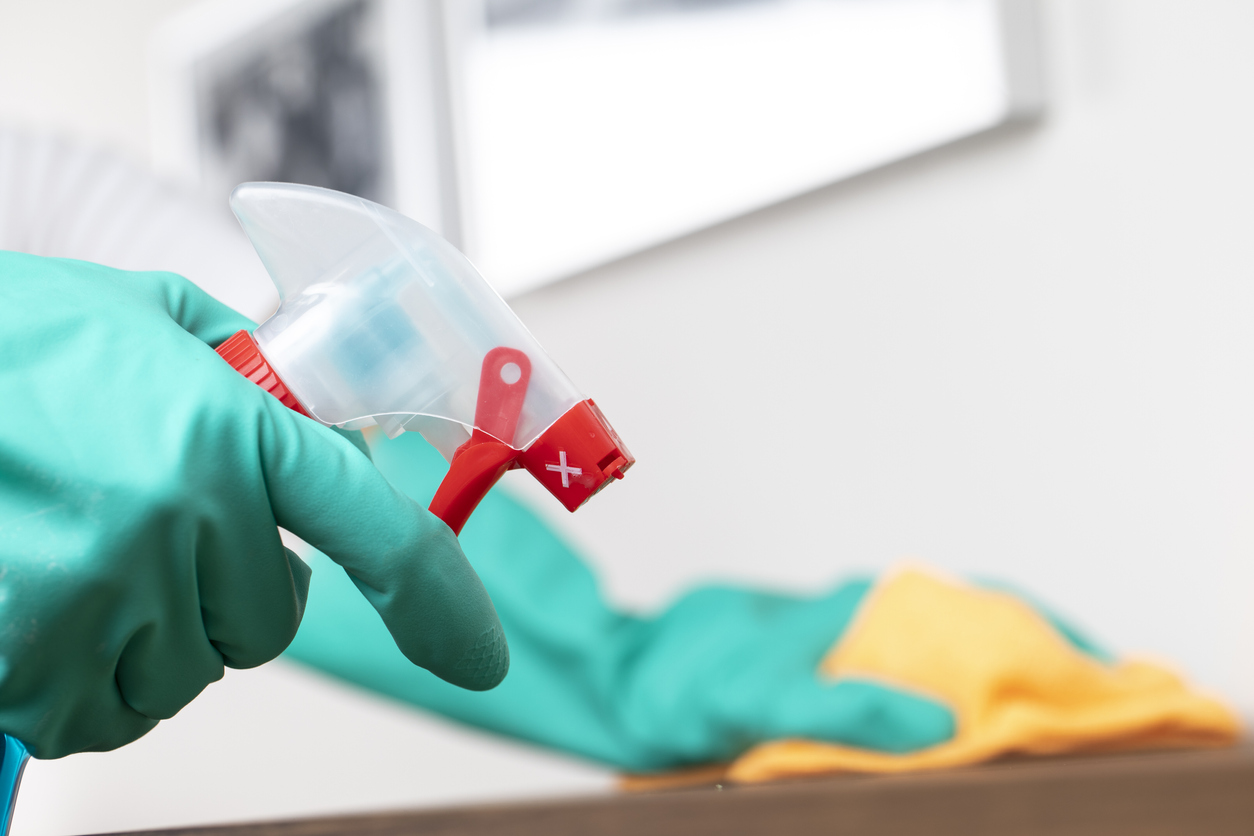
Those gloves you put on before cleaning your dishes or scrubbing your toilet (hopefully not the same pair!) can last you quite a while, but if they’re looking worse for wear, it’s time to ditch them for good. “Cleaning gloves should be ideally washed after each use, but again, only need to be replaced once they show signs of degradation,” says Parry.
Your Plastic Scrub Brush
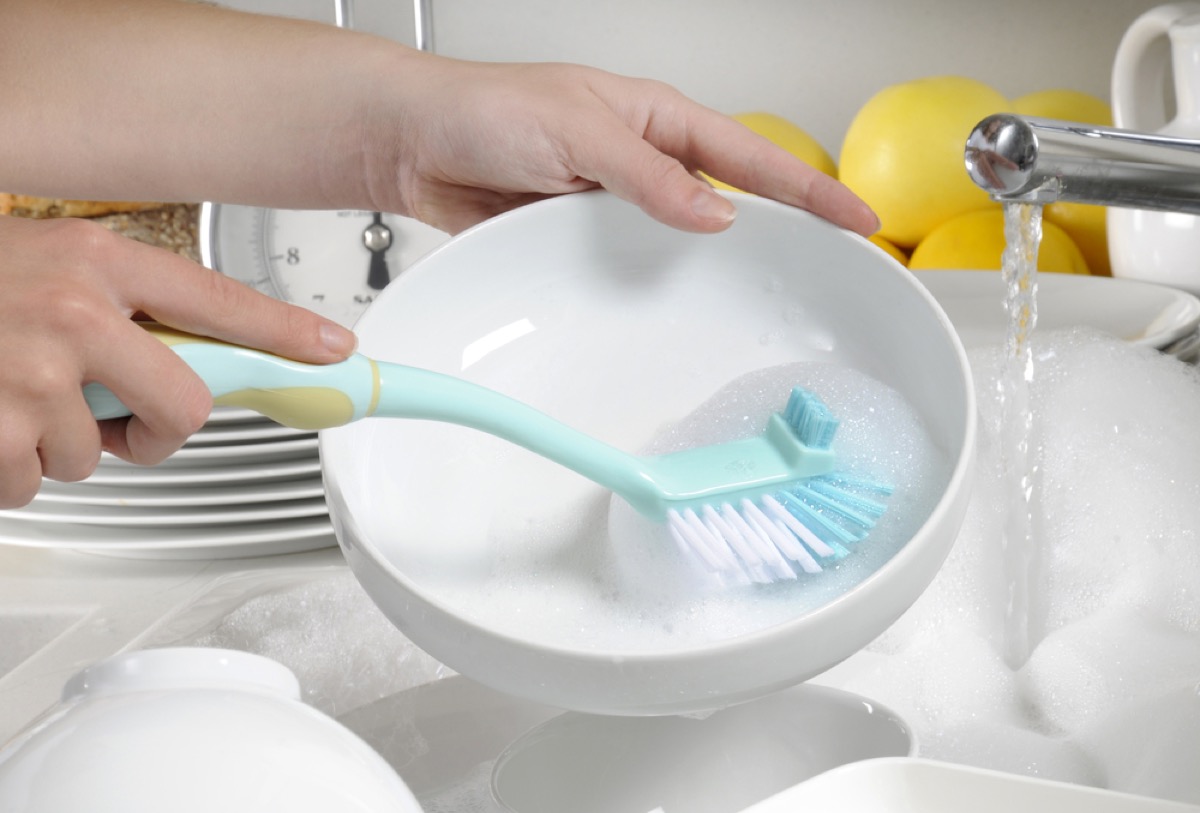
Considering how much grime they remove, those plastic scrub brushes can actually last you quite a while. “Plastic brushes used in tub, kitchen, and toilet scrubbers tend to be more durable than cloths and sponges,” Parry says. “Wash it every week or so, and you’ll only need to replace once the brush starts to degrade. Usually how quickly they degrade is based on how often and vigorously they’re used.” When in doubt, replace them every few months. And for insight into your other household items’ expiration dates, Here’s How Long Your Most Important Appliances Should Last.
Your Homemade Cleaning Supplies
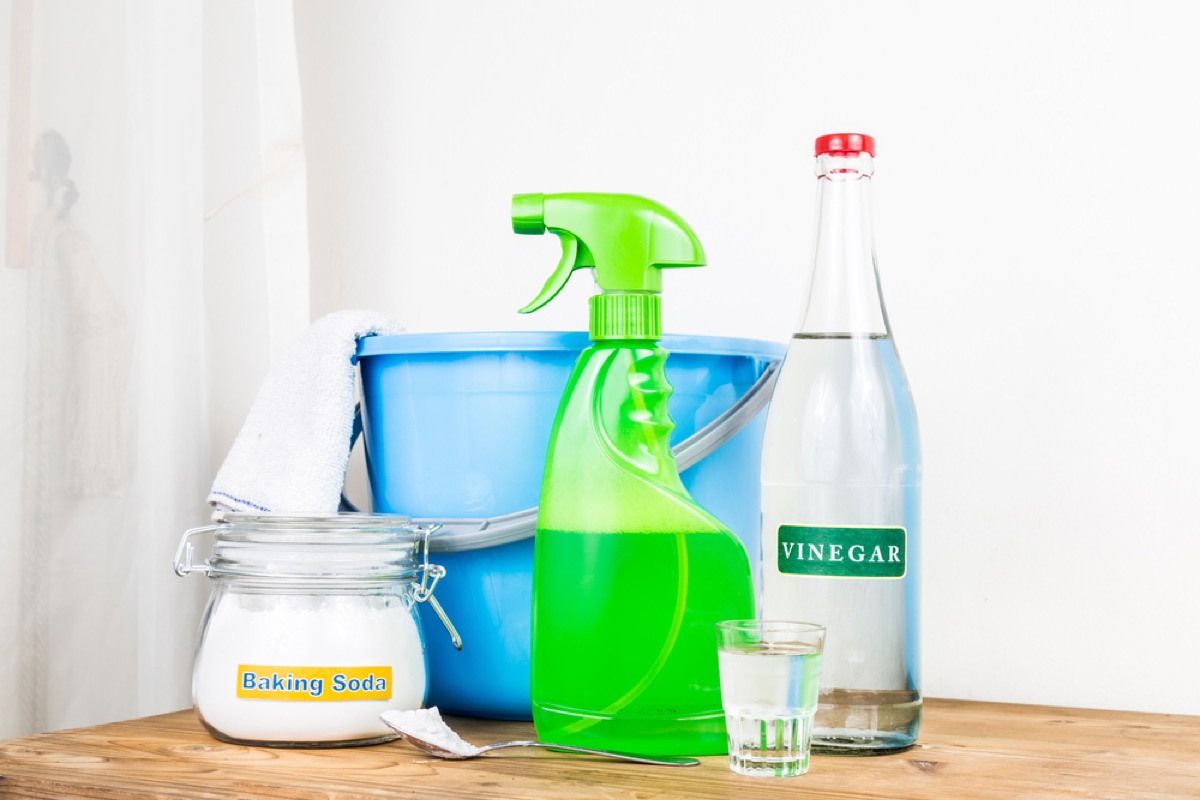
While your homemade cleaning supplies may get your house looking and smelling great sans chemicals, they don’t have the lasting power you’d get from your average store-bought supplies. “Homemade products should ideally be discarded after each use, so we recommend only making enough for the cleaning task ahead—or for, say, a few days’ worth for products you use continually, such as kitchen worktop cleaners,” says Parry. “Homemade products don’t have any long-term preservative chemicals added so they’re more likely to degrade with time and be less effective.”
Your Store-Bought Cleaning Supplies

Believe it or not, those cleaning products you picked up at Target do have an expiration date, and even improper storage can cause them to become ineffective. “Many bottles are opaque to avoid sunlight shining on the cleaning product itself and altering its properties,” says Parry. “You won’t need to change these too often, providing there hasn’t been a significant fluctuation in temperature.” He says most of these products will have a “use by” date on them, which can be anywhere from six months to two years. And for more tips like this, sign up for our daily newsletter.
Your Vacuum
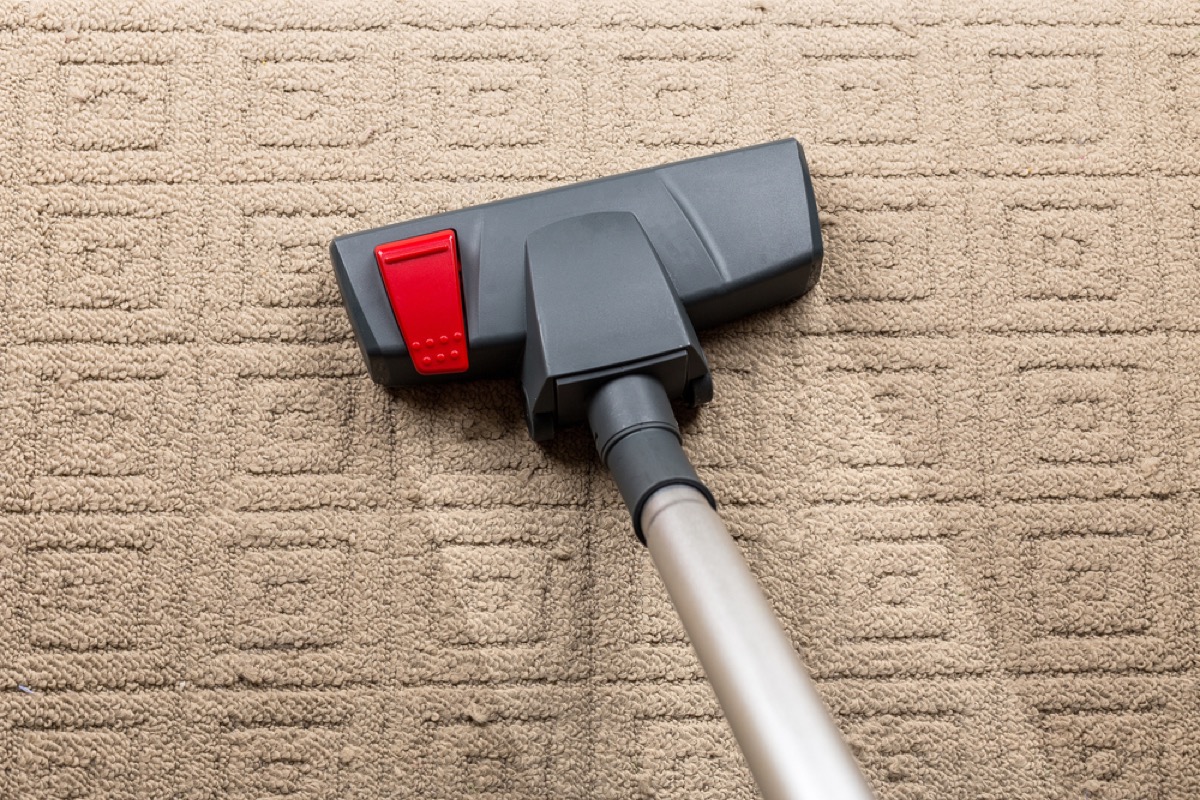
Don’t worry about that expensive vacuum giving up the ghost on you. “High-quality vacuums should last years, providing you give them a bit of maintenance every so often, such as replacing bags and making sure suction nozzles are clear,” says Parry. When in doubt, check the manufacturer’s instructions for service and have it examined by a professional if it’s no longer working. And for more advice on carpet cleaning, here are All the Ways You’re Vacuuming All Wrong.
Your Broom
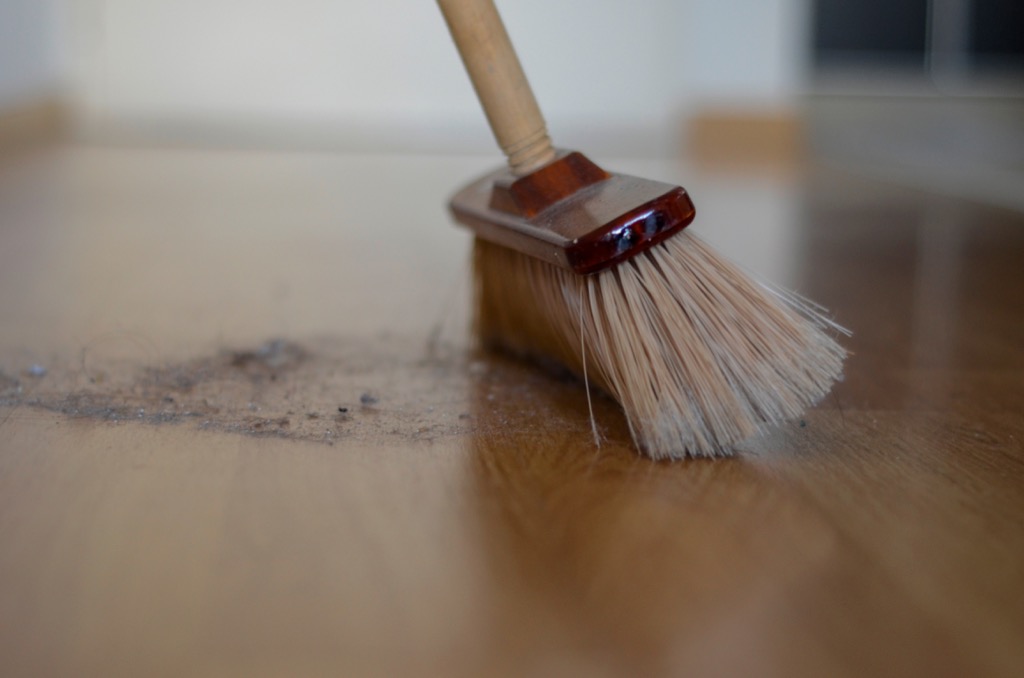
Your trusty broom might just be one of the longest relationships you have, providing years of use as long as it’s not used too vigorously. “Make sure you give them a good shake and clean after using, and store them so the head isn’t in contact with the ground so the air can get to them,” says Parry. “Piling all your tools on top of each other with no room ‘to breathe’ will damage them and the lack of air flow will mean they’re more likely to smell. Treat them well and they’ll give back!”